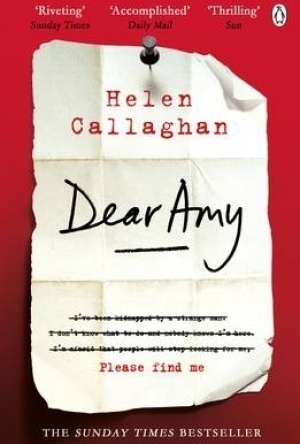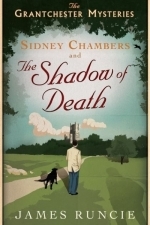
Contemporary Human Resource Management: Text and Cases
Tony Dundon, Adrian Wilkinson and Tom Redman
Book
Whether you're a student studying HRM or a forward-looking manager, Contemporary Human Resource...

Italian <-> Portuguese Slovoed Compact talking dictionary
Reference
App
#1 DICTIONARY TECHNOLOGY IN THE WORLD 43 000 entries and 10 000 Italian audio pronunciations...
BankofMarquis (1832 KP) rated The Gentlemen (2020) in Movies
Jun 27, 2020
Following up to his surprise strong Directing turn in the live action ALADDIN remake (if you haven't seen this film, the BankofMarquis strongly recommends you do), Ritchie returns to his "British Gangster" roots with the violent, funny and original THE GENTLEMEN.
Starring Matthew McConaughey as a U.S. born and bred, Cambridge educated hustler who becomes king of the British Marijuana scene who is looking to get out of the business, THE GENTLEMEN tells the tale of the...ahem...gentlemen that are pursuing (both legitimately and illegitimately) his empire.
The way that this film is constructed, the most essential casting of this film is that of the central character of Michael Pearson. He is billed as an enigmatic, charismatic, violent and brilliant legend of the British drug trade, so Ritchie needed someone with all these qualities to inhabit that role. Fortunately, with McConaughey, Ritchie finds his man (I'm sure the backstory of this character needed to be tweaked a bit upon this casting to explain why an American is the king of British Weed). McConaughey is at his laconic best in this role, bringing star quality - and star power - that holds the center of this film together well.
He is joined by a strong cast that understands the type of film they are in and are game to join in on the (violent) fun. Michelle Dockery (DOWNTON ABBEY), Henry Golding (CRAZY, RICH ASIANS) , Jeremy Strong (THE BIG SHORT) and the always watchable Eddie Marsan (THE WORLD'S END, amongst others) all are strong in the limited moments that their characters are allowed to shine, but with McConaughey and 3 other actors I will speak to in a moment, they are relegated mostly to the background.
This is because Hugh Grant (4 WEDDINGS AND A FUNERAL), Colin Farrell (PHONE BOOTH) and (surpisingly) Charlie Hunnam IPACIFIC RIM) almost steal the film from McConaughey, Each one of these characters could have easily been the centerpiece of their own film and I would be happy if Ritchie would spin one of these characters off.
Credit, of course, for all of this has to go to Ritchie who wrote and directed this film I was pleasantly surprised by the cleverness and inventiveness in storytelling and style as well as the restraint that Ritchie shows in the violence. He uses it (somewhat) sparingly and well, so the violence punctuates the action.
All-in-all a fun (though violent) time at the movies.
Letter Grade: A-
8 stars (out of 10) and you can take that to the Bank(ofMarquis)

Turkish -> Russian Slovoed Compact dictionary
Reference and Education
App
#1 DICTIONARY TECHNOLOGY IN THE WORLD 8 600 entries The most reliable dictionary content from the...

Italian <-> Slovenian Slovoed Compact talking dictionary
Reference and Education
App
#1 DICTIONARY TECHNOLOGY IN THE WORLD 13 000 entries and 10 000 Italian audio pronunciations...

The Thinking Man's Soldier: The Life and Career of General Sir Henry Brackenbury 1837-1914
Book
Sir Henry Brackenbury is a now largely forgotten but extremely important soldier, writer, and...

Data Mining for Business Analytics: Concepts, Techniques, and Applications with XLMiner
Galit Shmueli, Nitin R. Patel and Peter C. Bruce
Book
Data Mining for Business Analytics: Concepts, Techniques, and Applications in XLMiner(R), Third...
BookInspector (124 KP) rated Dear Amy in Books
Sep 24, 2020
I don’t think that the whole idea of getting letters from kidnapped people was very original, but the fact that they come after so long kept the suspense going. Unfortunately not for very long, because at least for me it was quite predictable what the outcome will be and who the sender was. The intensity of the plot I would describe as “V” shape. The beginning had turns and was interesting, the middle of the book got quite boring and predictable and then towards the end it became interesting and twisty again. I was not very excited to read so many Margot’s thoughts, as some of them were quite irrelevant and felt like dragging unnecessary. There was some action going on but it could’ve been a bit faster paced. It was quite easy to read this book; it has a simple and understandable writing style. The author shares her love for Cambridge in a very enjoyable way by describing the places and buildings very nicely and with great detail. Never been there but from this book I can imagine it is a beautiful place. I really liked that author touched such themes as school hierarchy, influence of internet posts and how naive young girls can be. I do hope that people who read the book will learn something from this book. I truly enjoyed the ending of the book and I think it was really thought trough and concluding. It didn’t leave any unfinished business and I’m very happy about it. So to conclude, It is a good book if you looking for mystery, some twists and turns and the story which was told from more than one point of view.

Dictionary and Thesaurus Pro
Reference and Education
App
Get the world's most comprehensive ad-free dictionary and thesaurus with extensive offline...
Hazel (1853 KP) rated Sidney Chambers and the Shadow of Death in Books
Jul 27, 2017
In 2014, ITV broadcasted the first episode of Grantchester, a drama series based on books by British novelist, James Runcie. Although written during the twenty-first century, the story is set in the 1950s in a village on the outskirts of Cambridge. Sidney Chambers, a young Canon in charge of the Church of St Andrew and Mary, is a polite and friendly character who, despite his reluctance, ends up acting as a detective in a variety of crimes.
Sidney Chambers and the Shadow of Death is the first book of six in The Grantchester Mysteries. Split into six individual baffling cases, the background story of Sidney’s private life continues to develop throughout. Each crime is committed and swiftly solved by the Canon and his friend, Inspector Geordie Keating, although it is Sidney who ultimately resolves the case.
Murder, jewellery theft and art forgery and just some of the felonies Sidney grudgingly gets involved with. In fact, unresolved crimes tend to land in his lap rather than offering his assistance willingly. Up at dawn to work on sermons before rushing off to capture criminals, Sidney is never off duty.
A vicar may seem like an unlikely candidate for a detective, however, people tend to open up to him and unintentionally reveal delitescent information. Listening to suspects and witnesses without pre-judgement allows Sidney to think things through carefully rather than jumping to conclusions. From the moment the crime is committed right up until the story’s denouement, Sidney passionately does everything he can to make sure the correct culprit is discovered.
What makes this series different from other crime novels is the focus on Sidney Chambers’ own life. James Runcie emphasises the loneliness of a bachelor living in a vicarage with only a curate and crotchety housekeeper for company. Readers are drawn into Sidney’s stories and hold onto the hope that his dalliances with the beautiful Amanda turn out to be something more concrete.
Those who have watched the ITV series will be familiar with the stories in this book because the producer has stuck to the exact storyline, not missing a single thing out or adding anything extra. The fact that there were only two years between publishing and screen production goes to show how well written and thought out these stories are. Unlike famous detective novels such as Sherlock Holmes or those by Agatha Christie, The Grantchester Mysteries are not set at the time of writing, so, although they are historically accurate, the prose is suitable for present day readers.
Each story is quick to read and is easy going, making it a relaxing and enjoyable book. It is not a thriller or horror, although some of the crimes are quite terrible. Instead, it is entertaining and often humorous. It is suitable for crime fiction fans as well as those new to the genre.
Regardless of whether you have watched the television series or not, Sidney Chambers and the Shadow of Death is a delight to read. Of course, ITV has given away all the endings, but it is a different experience to read it in print rather than seeing it acted out on screen. Featuring the face of James Norton on the cover so as to work as a TV tie-in, the series will be easy to spot in prime position on bookshelves both in shops and personal collections.


